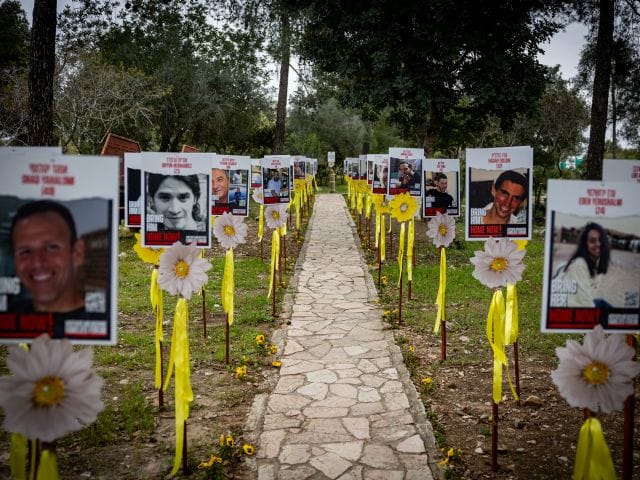Israel and Hamas are currently discussing the details of a potential deal involving the release of Israeli hostages and a temporary ceasefire in the Gaza Strip for the first time in months.
This information comes from Barak Ravid's report in Axios, citing two Israeli officials and another reliable source.
Negotiations, which have been mediated by Qatar and Egypt since December 2023, have hit a deadlock.
The impasse is due to debates over the negotiation framework rather than the specifics of the agreement, as noted in the publication.
The proposed deal under discussion could result in a six-week ceasefire in Gaza and the release of 40 hostages. These hostages include women, female soldiers, men over 50, and those with health conditions that pose life-threatening concerns.
In exchange, hundreds of Palestinian prisoners would be released, according to the report.
The American proposal suggests a 40:400 exchange ratio: 40 hostages for 400 Palestinian prisoners, which includes 15 individuals serving life sentences for killing Israelis.
On March 14, Hamas proposed an alternative "40:950" exchange ratio: 40 hostages for 950 Palestinian prisoners, including 150 serving life sentences.
Ravid reports progress in negotiations last week when Hamas responded positively to the structure of the hostage agreement proposed by the US, Qatar, and Egypt.
While differences still exist between the parties, Hamas's response has brought them closer to the initial outline, allowing talks to focus on ironing out the deal's specifics, according to Israeli officials.
The primary disagreement now revolves around Hamas insisting on the right to select who will be included in the release list, a demand that Israel rejects.
Conversely, Israel insists on receiving a list of living hostages in advance of the exchange and reserves the right to deport some of the released prisoners to other countries. Hamas opposes deportation.
Another contentious issue is Hamas's demand for the IDF to withdraw from the corridor established south of Gaza City, which currently prevents residents from returning to northern Gaza. Israel does not agree with this demand.
Additionally, Hamas demands that the next stage of the agreement, which could involve the release of military hostages, includes a permanent ceasefire.
However, despite these challenges, there are indications, as the publication highlights, that both Hamas and Israel are willing to make concessions.












